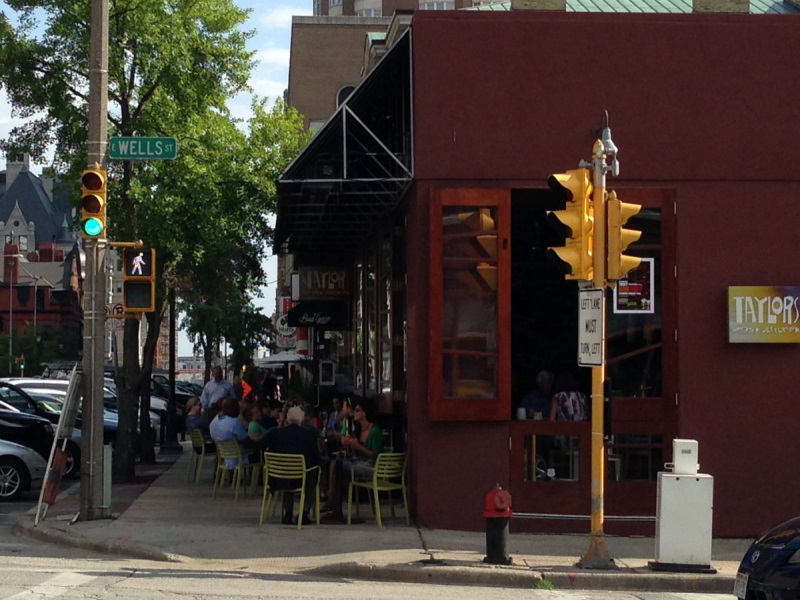Go Find Your ‘Third Place’
All the city news you can use.
Every day at The Overhead Wire we sort through over 1,500 news items about cities and share the best ones with our email list. At the end of the week, we take some of the most popular stories and share them with Urban Milwaukee readers. They are national (or international) links, sometimes entertaining and sometimes absurd, but hopefully useful.
Flood insurance reform coming: Last Friday the National Flood Insurance Program revised premiums on 5 million homes around the country to more accurately assess flood risk. It’s a big deal for climate policy and hopefully will discourage the construction and reconstruction of more housing in severely flood prone areas. FEMA is claiming this is also more equitable way forward as higher value properties will see higher premiums while lower value properties will see premiums reduced. (Thomas Frank | E&E News Climatewire)
Oakland tests universal basic mobility: Austyn Gaffney talks with Oakland DOT planner Quinn Wallace about how Oakland recently finished a Universal Basic Mobility pilot on December 31st that gave 500 riders $300 debit cards for universal transportation including bike share, scooters, and the bus. They found that 40% of participants changed how they traveled and 23% drove alone less often. The city hopes to continue the success of the program. (Austyn Gaffney | Smart Cities Dive)
Go find a third place: A “third place” is a place that isn’t work, isn’t home, has a low barrier to entry, and conversation is the main activity. After the invention of the tv and the internet, our public lives and third places declined as people entertain themselves at home and with screens while the cities around us become more expensive and less accessible. Perhaps now is the time to go out and find a third place, or make your own. The spontaneity might do us some good. (Allie Conte | The Atlantic)
13 Climate Fighting Megaregions: In an interconnected world, we need larger responses to the challenges ahead such as climate change. In a new book, authors Ming Zhang, Bob Yaro, and Fritz Steiner argue that the Megaregion scale is appropriate for responding to disasters and focusing our planning action. The challenges we face don’t stop at municipal borders, and as such we need a different geography that addresses the scale of our problems. (Nate Berg | Fast Company)
Quote of the Week
My analysis [in Ghana] showed that in areas that are more ethnically heterogeneous and where there are more people passing through intersections, we find more interconnections among people and more cooperation within communities in community development efforts.
–Paige Bollen, a sixth year graduate student at MIT in MIT Political Science News discussing her work that shows how urban street networks encourage encounters with neighbors and create familiarity among strangers.
This week on the podcast, Kevin Krizek, professor at the University of Colorado Boulder, and David King, assistant professor at Arizona State University, talk about their book, “Advanced Introduction to Urban Transport Planning.”
Want more links to read? Visit The Overhead Wire and signup.
Urban Reads
-
Congestion Pricing Cuts Air Pollution in New York City
 Dec 14th, 2025 by Jeff Wood
Dec 14th, 2025 by Jeff Wood
-
We Think We Love to Drive. But Do We Really?
 Dec 7th, 2025 by Jeff Wood
Dec 7th, 2025 by Jeff Wood
-
Can Scott Wiener Tackle America’s Housing Crisis?
 Nov 23rd, 2025 by Jeff Wood
Nov 23rd, 2025 by Jeff Wood





















Third spaces become especially important when home and work are the same place! I have a local bar I call my “second living room”…also, the gym. 🙂